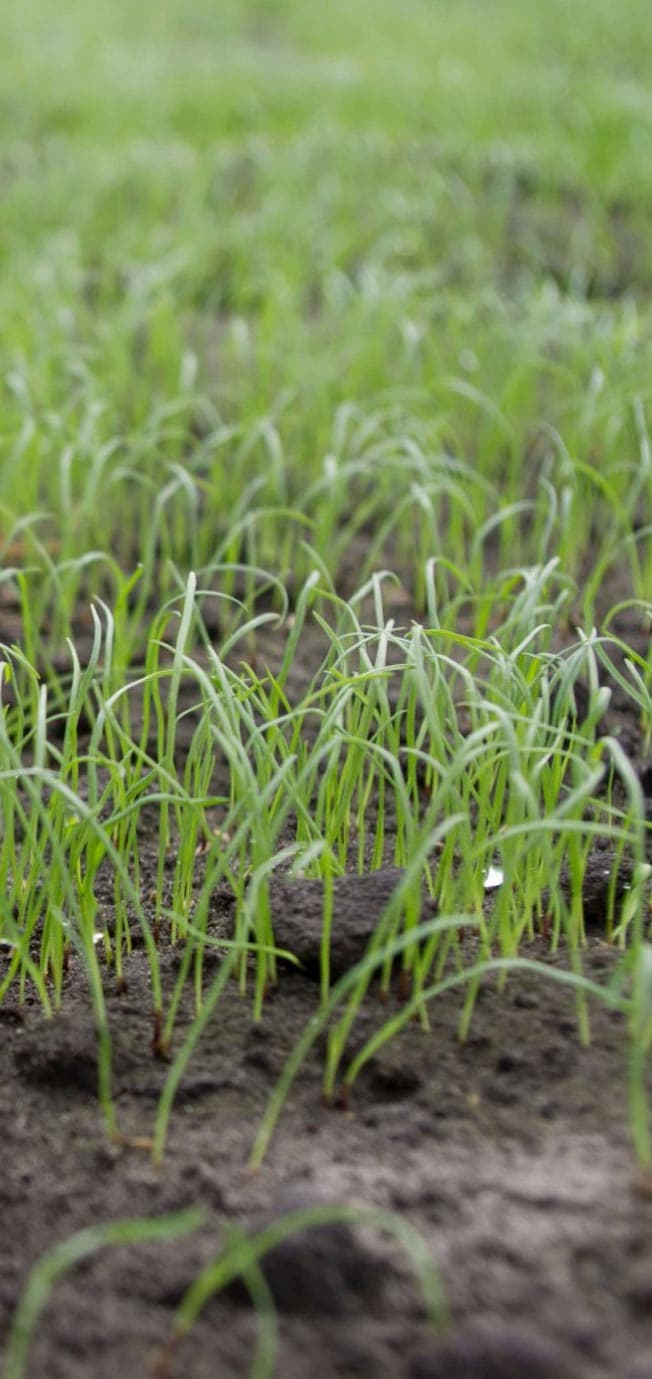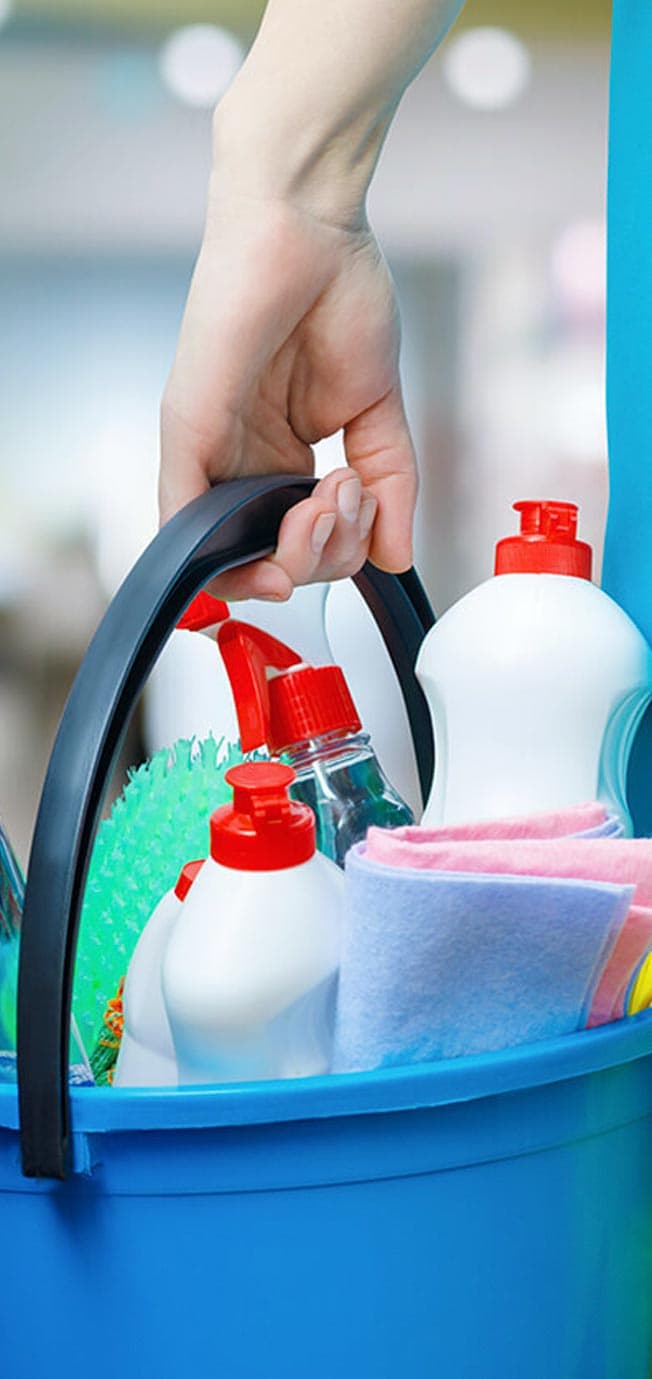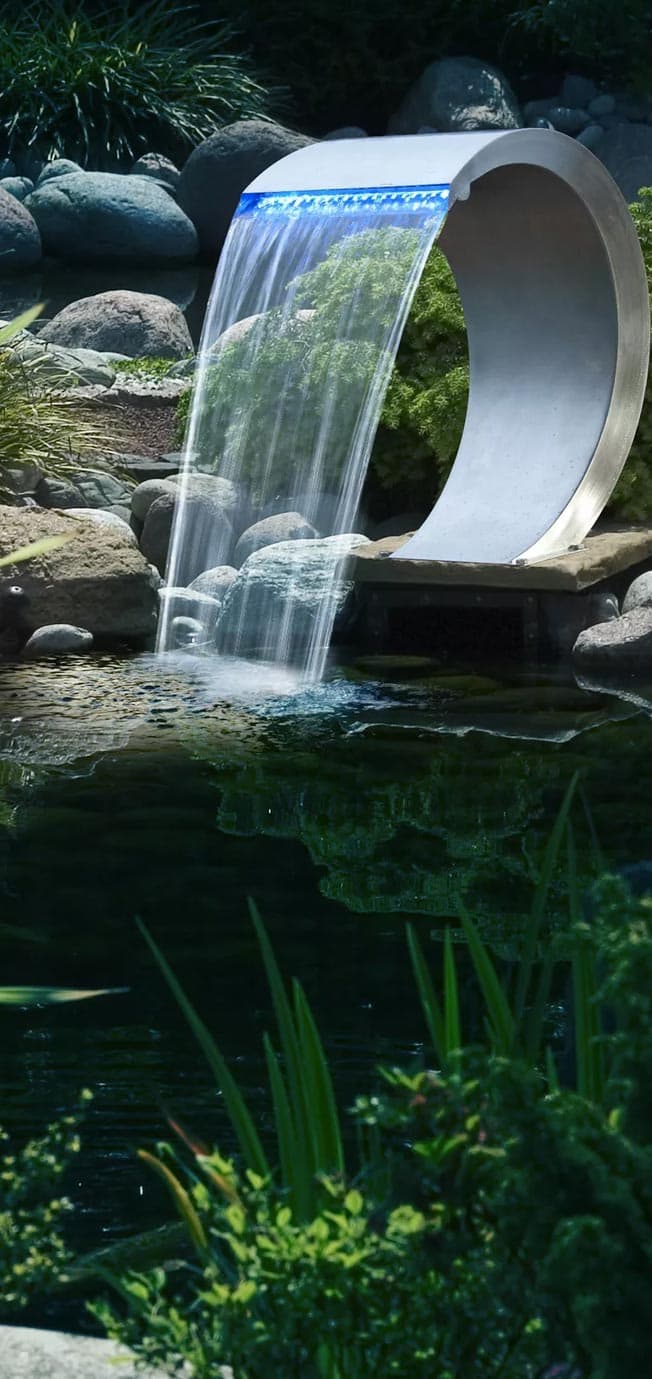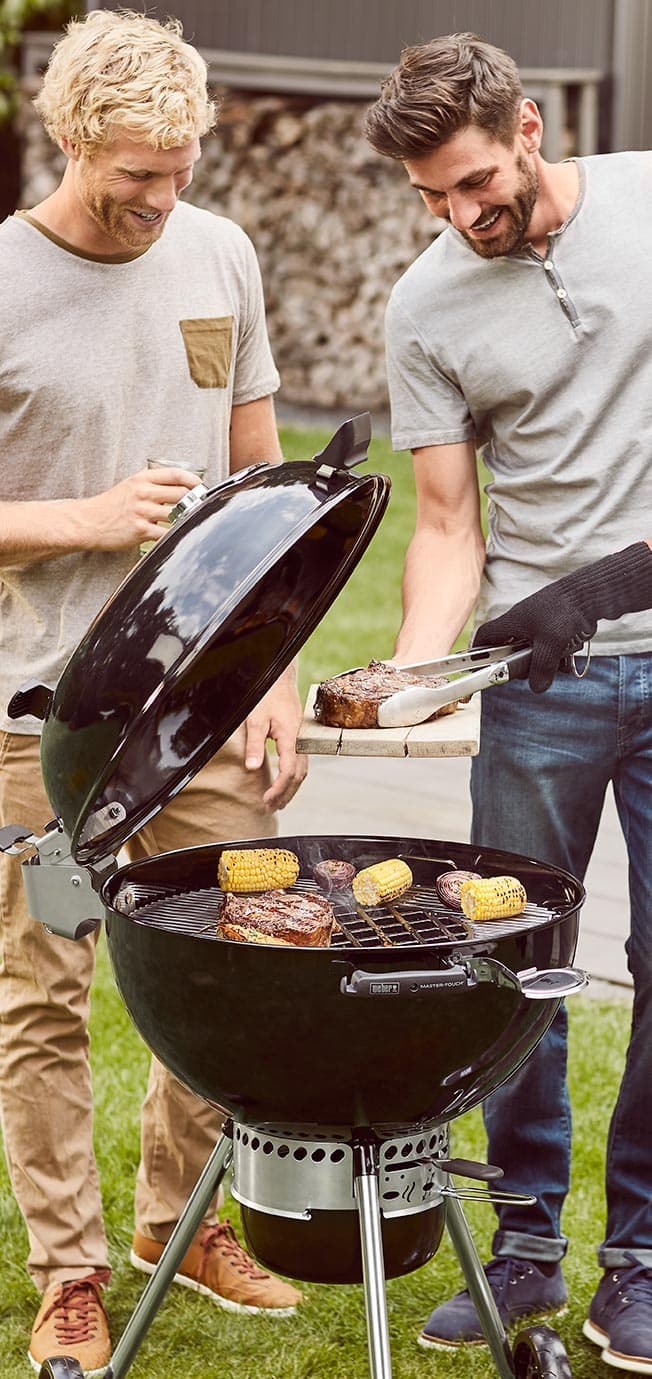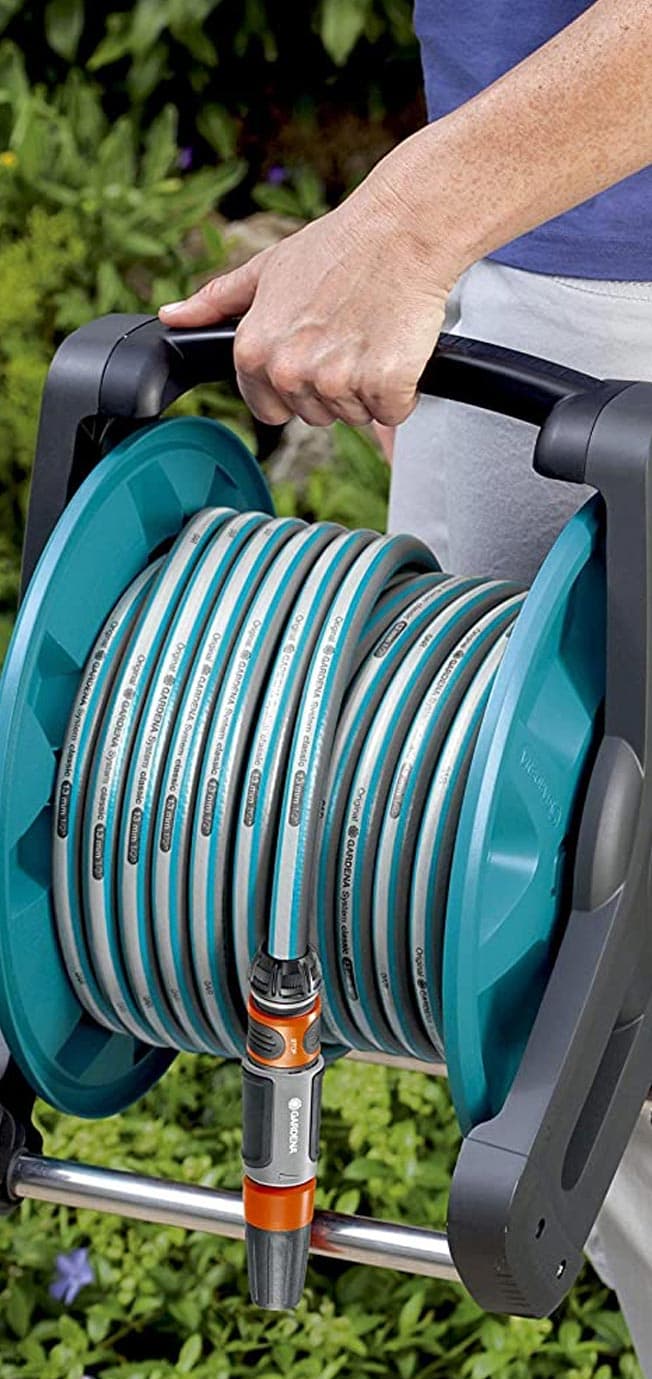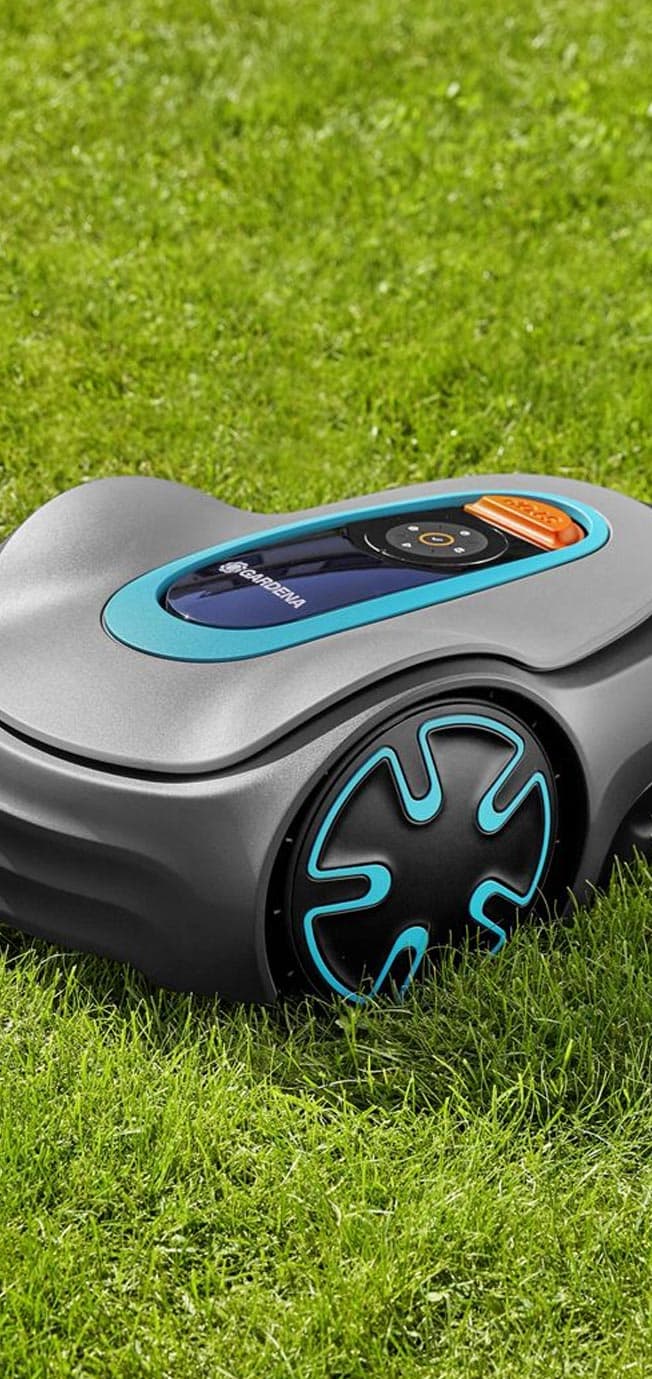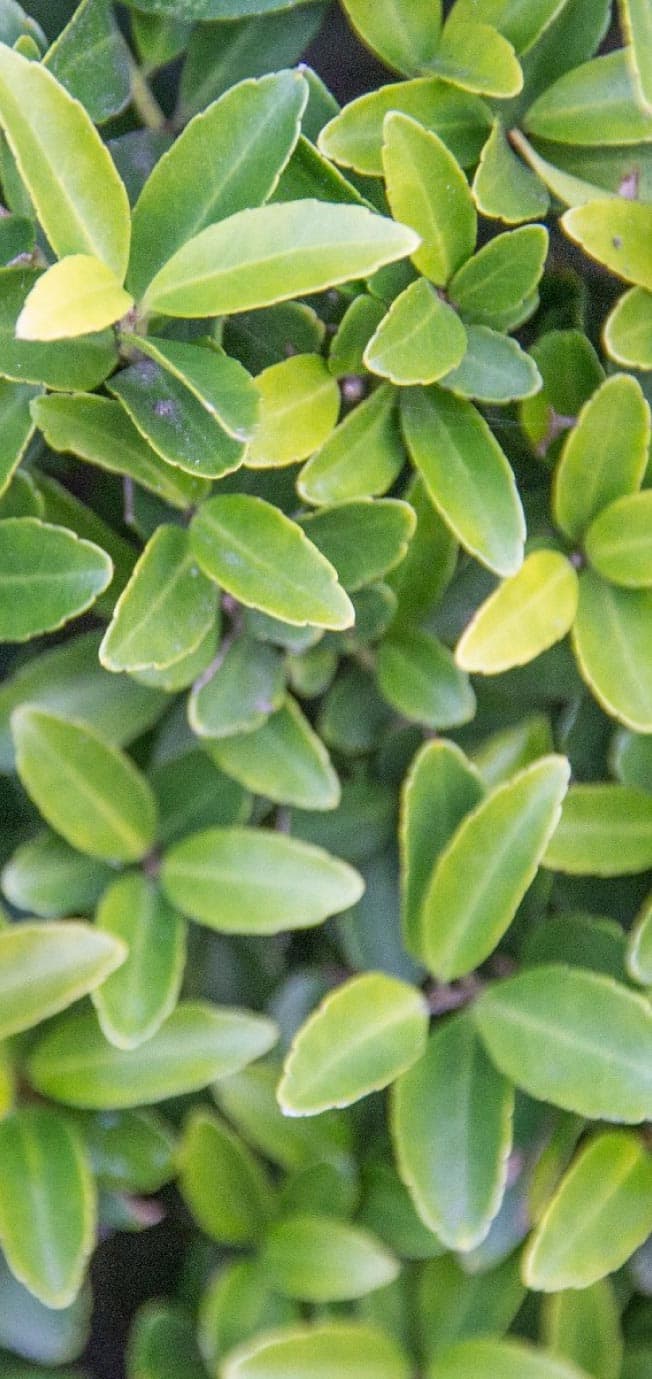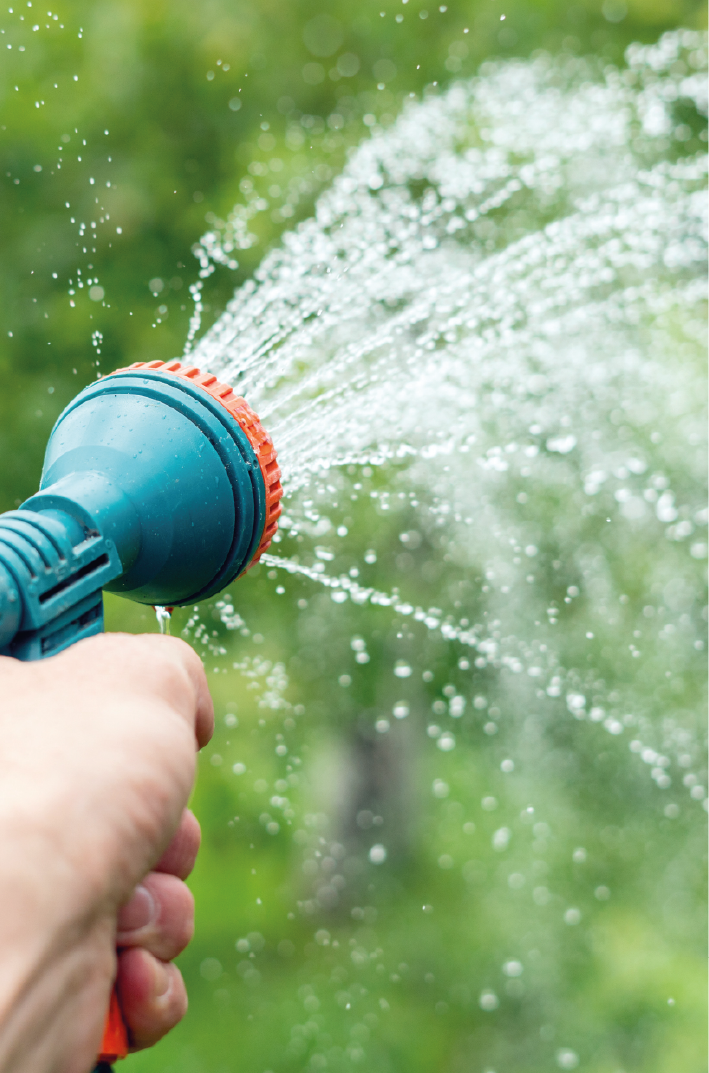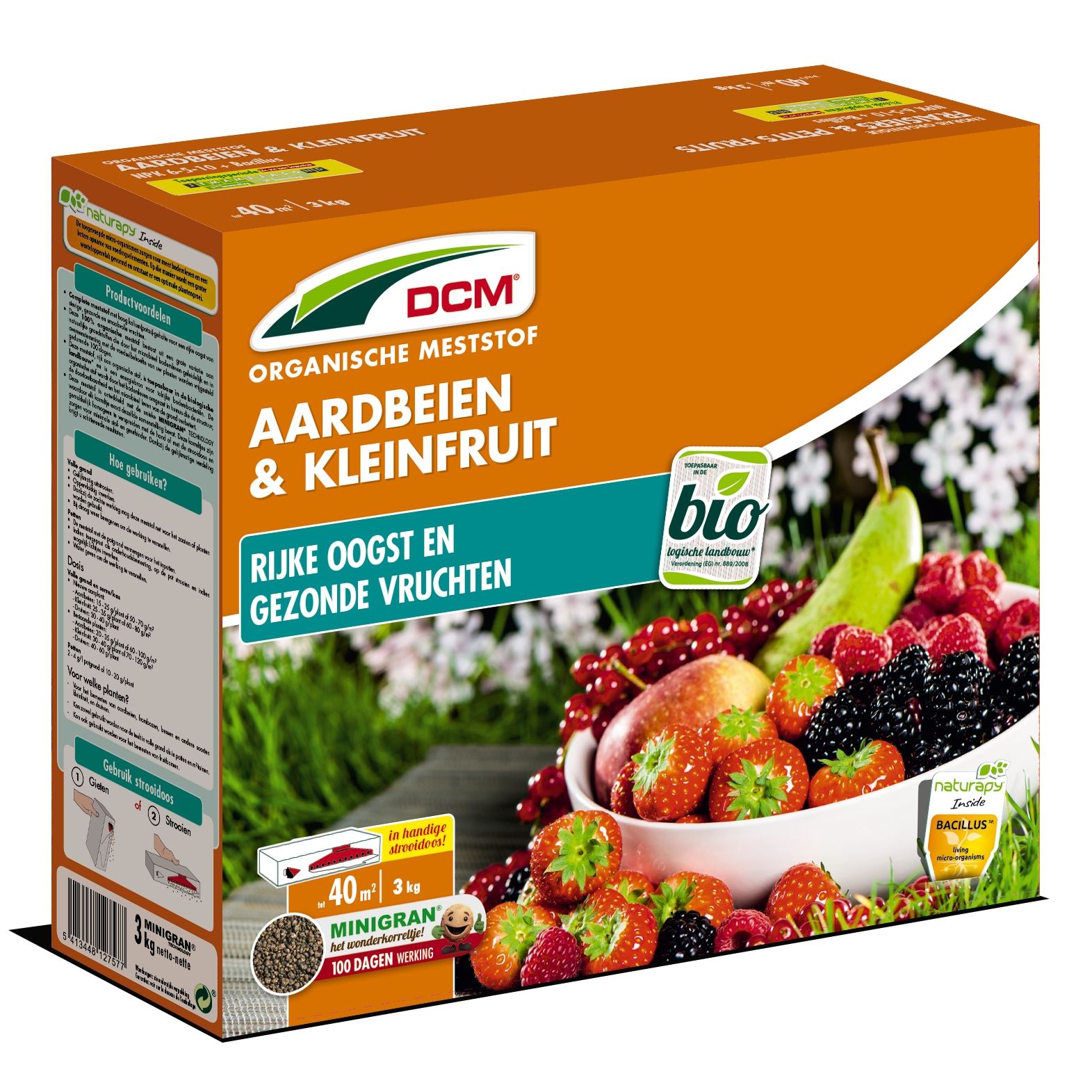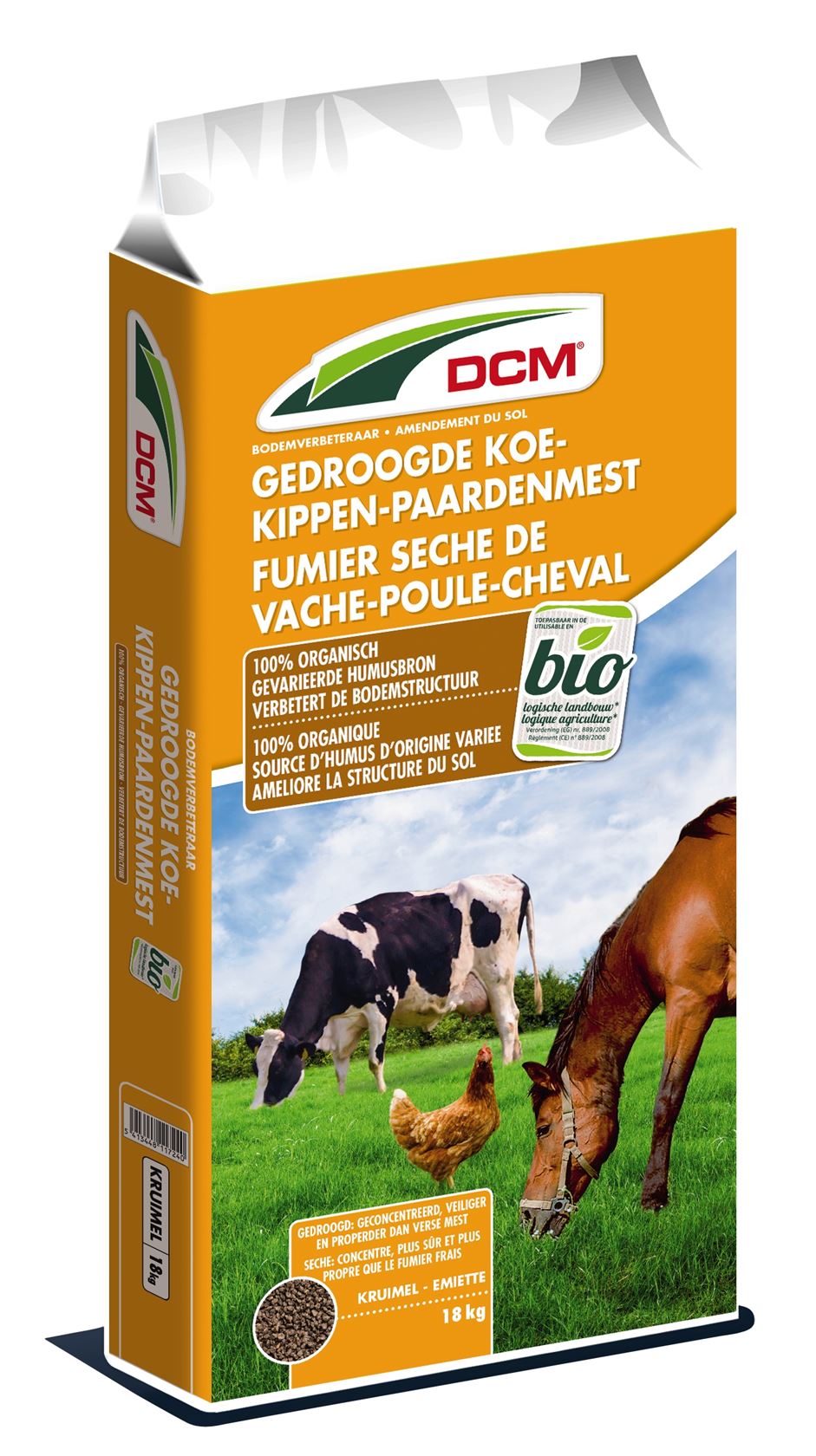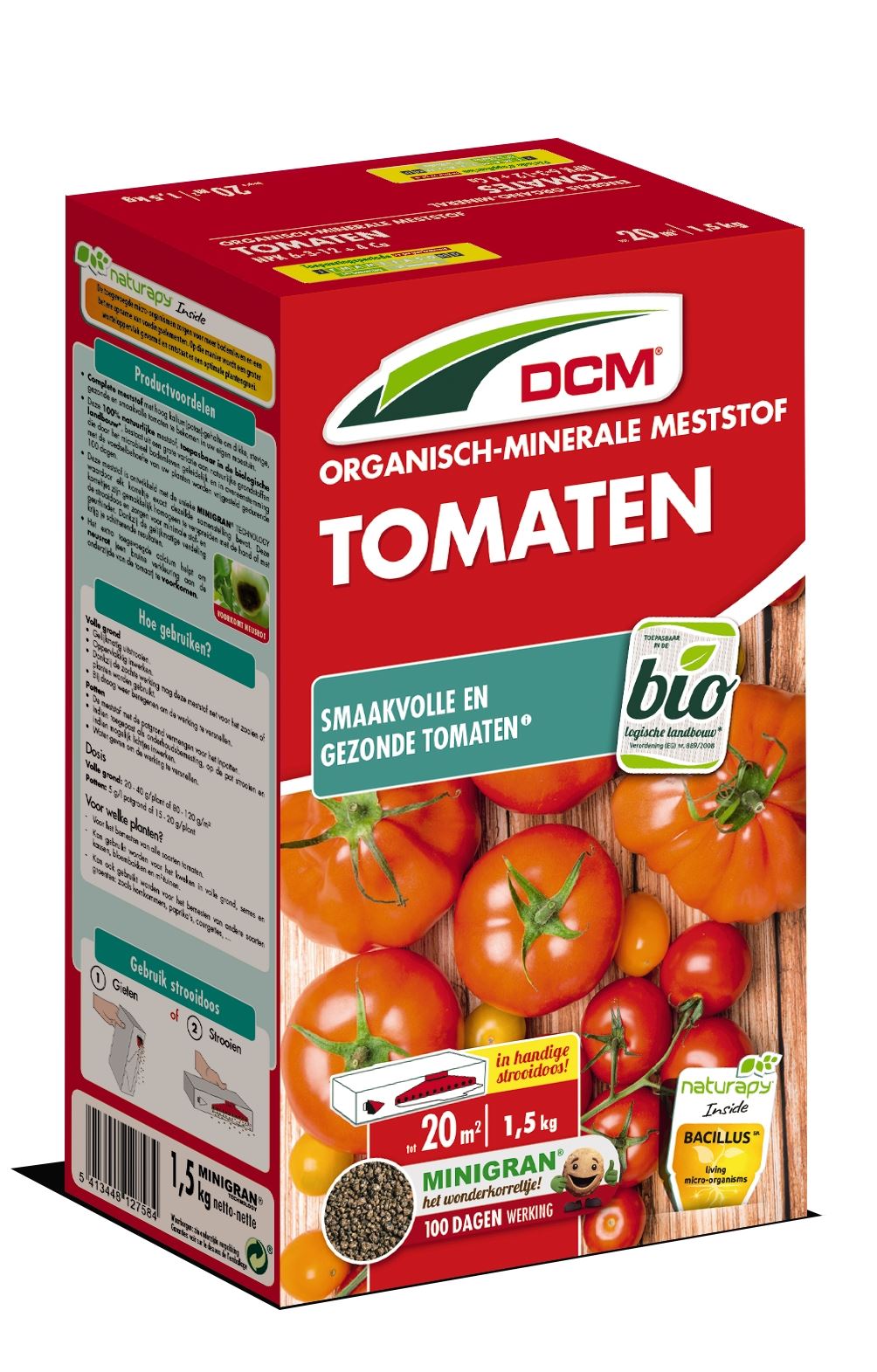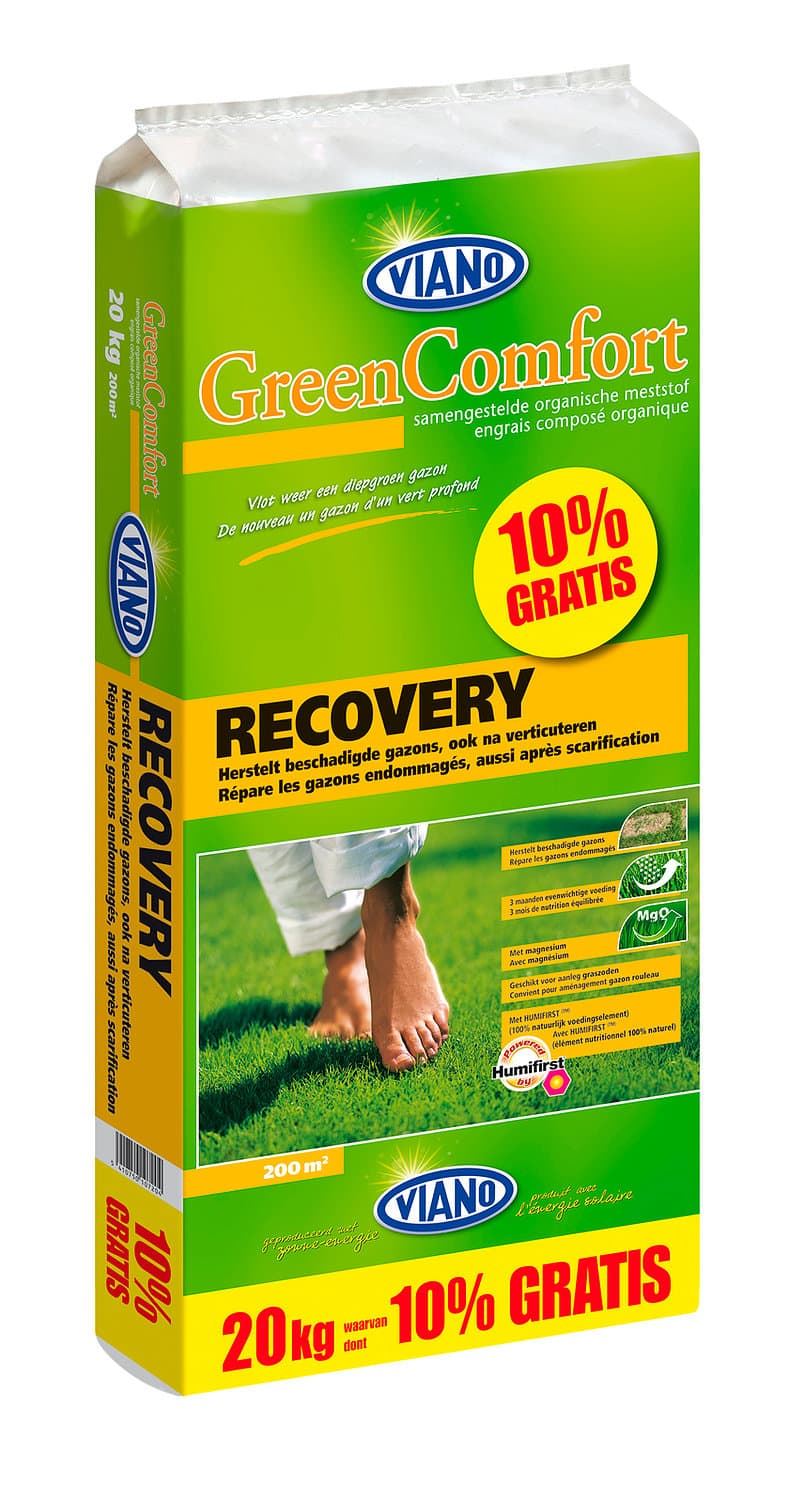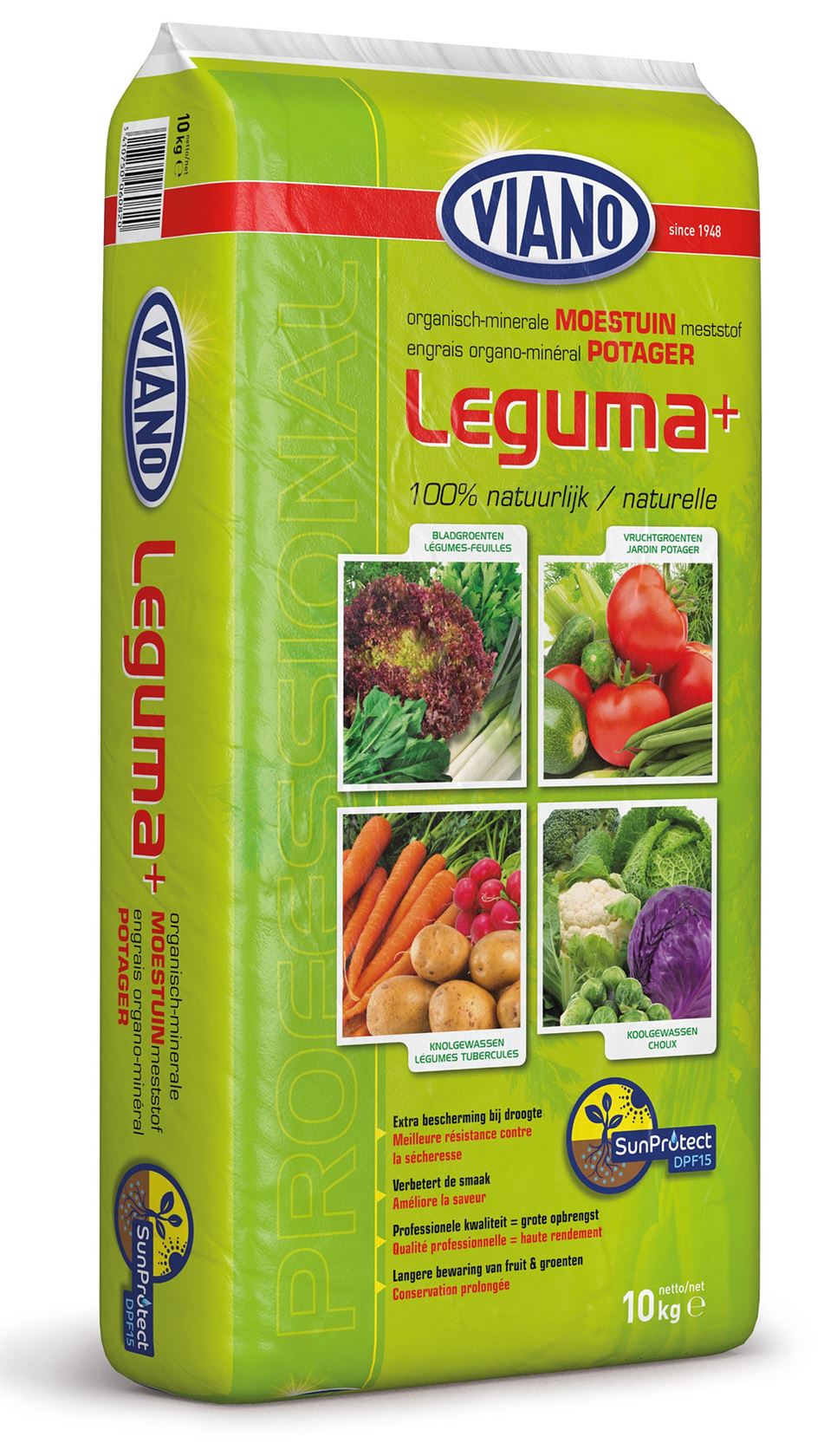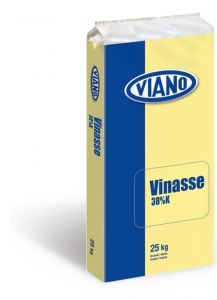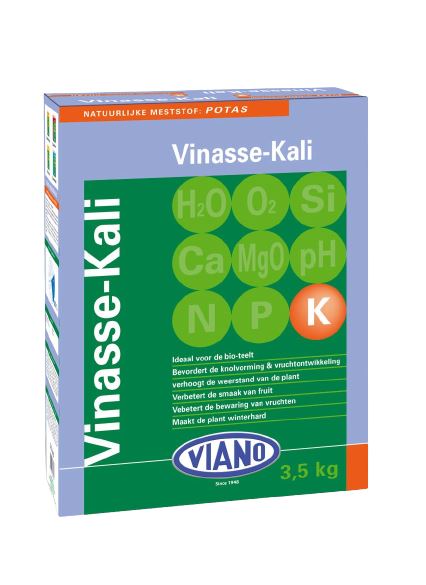
Which fertiliser do my plants need?
In a previous article, we explained the difference between potting soil and soil improver. But then there is the third category: fertiliser. What is it for, and do my plants need it?
Fertiliser is a source of nutrition and gives your plants a boost. However, it is important that your soil is well balanced to be able to absorb these nutrients. And that is where soil improvers come in. To put it bluntly: if you have a pure sandy soil, the water and fertilisers you give it will simply wash away. So always start by improving the soil first and only then add fertiliser.
Fertilisers can be divided into 2 major categories:
artificial fertilisers and organic fertilisers. The latter come from plant residues or already digested animal excrement. Artificial fertilisers, on the other hand, are made from non-organic (or chemical) materials.
In both categories, the ratios between the elements
potassium, nitrogen and phosphate. For each plant group or vegetable, specific fertilisers are made. And that is very handy, because as a layman, you do not know, for example, that there is a big difference between the fertiliser you give to leeks and the one you use for tomatoes. However, you can also go overboard with this because many fertilisers can be used overlappingly.
And fresh farmyard manure?
Fresh farmyard manure is actually a fairly one-sided organic fertiliser. It is perfect for use with rhubarb, lettuce or leek plants, for example. There are, however, a few points of attention:
- The farmyard manure should not be fresh but well-digested (approximately 1 year old). If not, you have to be careful not to burn the roots of your plants.
- Be careful with fresh manure in the greenhouse! This may contain viruses that were in the corn, for example, and have not yet been killed. These viruses can easily spread to your tomato plants.
So do not use fresh manure just like that!
What is the difference between chemical & organic fertiliser?
Chemical fertilisers
The benefits?
- Quick results: chemical fertilisers are immediately absorbed by the plant, so results are quickly visible.
- Specific nutrients: because chemical fertilisers are artificial, you can mix them very precisely with the necessary nutrients. Thus, they contain a bomb of nutrients for your plants and can be formulated to the specific needs of each plant.
- Long shelf life: chemical fertilisers often have a longer shelf life.
The drawbacks?
- Short duration of action: although chemical fertilisers are immediately absorbed by the plant, they also have a shorter duration of action. So an instant beautiful result but of shorter duration!
- Addiction: did you know that your plants can become addicted to the boost of chemical fertilisers!
- Overdose: overusing chemical fertilisers can lead to soil contamination. Moreover, it can also burn your plants or make it easier to over-fertilise them, which also plays into your plants' disadvantage.
Organic fertilisers
The benefits?
- Boost your soil: organic fertilisers feed not only your plant, but also the soil. They contribute to a better soil structure and soil life, which in turn benefits your plants.
- Long working life: these fertilisers have a longer working life than chemical alternatives.
- More environmentally conscious: organic fertilisers are much less likely to burn your plants. They are also more environmentally friendly.
The disadvantages?
- No instant results: organic plants may have a longer duration of action, but they are also absorbed more slowly. That means you don't have instant results, as you do with chemical fertilisers.
- Less potassium: the potassium content is lower in organic fertilisers than in artificial fertilisers. Potassium, also known as potash, is just what you need to develop strong plants (with big fruits).
- Less precise: chemical fertilisers can be formulated exactly according to plant needs. As organic fertilisers use only natural materials, the composition can vary.
The NPK formula
The NPK formula is stated on many fertilisers. But who are these key players and what do they do?
- N = Nitrogen: stimulates leaf growth and ensures a fresh green colour
- P = Phosphorus: ensures strong roots and good bud formation
- K = Potassium: regulates the water absorption and ensures strong plant cells. Potassium plays a major role in the formation of beautiful juicy and large fruits. It is also an important factor in the resistance against fungi and diseases.
Then we have the other common elements: - Mg = Magnesium: creates chlorophyll for photosynthesis
- S = Sulphur: provides plant proteins and amino acids
- Ca = Calcium: neutralises the soil so that it cannot become too acidic
It is useful to know which elements have which function for your plants. Do you see, for instance, that your plant gets yellow leaves? Then it could be that it needs extra nitrogen. This way, you can look for a specific solution and choose the right product.
For which plants is it important to use special fertilisers?
With tuberous and fruiting vegetables (such as potatoes, strawberries...) it is very important to use an appropriate fertiliser. These are rich in potassium so that you get large and strong fruits. For these plants, the idea is not to grow a lot of leaves. The more leaf growth, the less room for the fruit to grow, the less light and the greater the chance of (fungal) diseases. Vinasse potash (organic fertiliser) and Patent potash (artificial fertiliser) are therefore the ideal single fertilisers specifically for fruiting vegetables. They should be combined with other fertilisers. Do you prefer things a bit easier? Then you can also use a compound fertiliser such as Leguma. This contains all the necessary nutrients and has a high K content!
Also for the lawn, we use specific fertilisers that make the grass greener (typical spring fertiliser), or that keep the moss out of your beautiful lawn (these have a high K content).
And fertiliser with weed control?
Since 2019, the use of selective herbicides has been prohibited. So also the fertilisers with a pesticide in it. The typical 4-in-1 therefore no longer exists, and has been given a makeover with a modified composition that is more focused on prevention.
By taking good care of your lawn (fertilising it) and ensuring a dense turf, you can prevent weeds. It is better to fertilise the grass in the spring so that you can enjoy a beautiful lawn during the spring and summer months, and so that weeds have less chance to establish themselves. Fertilise your lawn about every 3 months.

Tip from Marcel
Sow SOS grass seed in winter and early spring before weeds or street grasses start to germinate (from 8°C). SOS grass seed germinates as early as 8°C. Place some flapping ribbons to keep birds away or use coated grass seed.
In addition to fertilising your lawn, you can also achieve a dense turf by sowing any bare or less well-covered grass areas with a fast-germinating grass mixture. By sowing the bare spots with the right grass seed you ensure that street grass and weeds have no chance to germinate and expand. Already at 8 °C, street grass germinates. Rye grass only germinates at 10 °C. By sowing the special SOS grass seed mixture, which germinates at temperatures as low as 4 °C, you will outsmart and outgrow street grass!
CAUTION:
It is important when sowing that you do NOT use any heavy nitrogen (N) fertiliser. A good fertiliser, which is often used under turf, for example, is a low dose Recovery fertiliser (ideal for rooting and a beautiful green lawn).
These articles might also interest you? 👇
More info? Receive all our gardening tips directly in your mailbox!
We'll only email you handy facts, green advice and our best promotions & discounts. You'll receive it about once a week and you can unsubscribe at any time. No spam, promise 🤞

